The government of Honduras plans the creation of neoliberal free-market enclaves, unaccountable to national laws and governed by foreign corporate interests. Stipulated for territory inhabited by Garifuna people and campesino farming communities, with propaganda about democracy, economic innovation and humanitarian justice, “President” Pepe Lobo should first refrain from presiding over the coup-backed “illegitimate regime.”
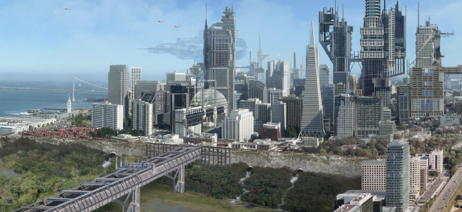

Charter Cities: Neoliberal Viagra
By Belén Fernández, Published on AlJazeera English
No sooner was the blatantly colonial charter city project in Honduras declared unconstitutional by the Honduran Supreme Court last year than it found itself back on the agenda.
The gist of the project is the creation of free-market enclaves on Honduran territory that are unaccountable to national laws and are instead governed by foreign corporate interests. In a recent edition of Inside Story, Al Jazeera’s Shihab Rattansi summarises the magical resurrection of the charter city movement after the court’s ruling of unconstitutionality:
“Congress, dominated by the ruling party, subsequently voted to sack four of the judges who were against the project, and that has helped clear the legal obstacles.”
Given that Honduras is not even accountable to Honduran law – something made especially clear by the illegal coup d’état against President Manuel Zelaya in 2009 that was also facilitated by Congress – it’s not immediately clear why legally autonomous city-states must be erected.
A promotional video for the “special development regions” promises “more efficient and investment-friendly [rules] than the ones used today in the rest of the country,” which disingenuously suggests that Honduras is not already one big free-market enclave in the sweatshop tradition.
Indeed, one of the motives for deposing Zelaya had to do with his less than total obsequiousness to foreign capital. Current President Pepe Lobo, who ascended to power via illegitimate elections held in the aftermath of the coup, obediently set about courting the global elite with an event called “Honduras is Open for Business.”
Bringing together investors from 55 countries, the conference’s distinguished guest list included US officials, the world’s richest person Carlos Slim, Colombia’s former president-cum-human rights violator extraordinaire Alvaro Uribe, and Paul Romer – mastermind of the charter city concept.
Utopian anti-democracy
Economist and political commentator Maricruz Magowan, one of the participants in the Inside Story discussion, argues during the programme that Lobo has embraced the charter city initiative as a means of signalling that Honduras is on the path to democracy following “the problem”. Rattansi interjects the literal term: “the coup.”
Of course, if Lobo really wanted to promote a democratic image of Honduras, he might refrain from presiding over an illegitimate regime and a system of institutionalised state violence and impunity.
httpvh://youtu.be/7wk4U_Dr_24
Honduras revives the idea of the charter city – free-market enclaves where corporations can operate virtually under their own rules. From AlJazeera
As Dana Frank – professor of history at the University of California, Santa Cruz – noted in a New York Times Op-Ed back in January 2012:
“At least 34 members of the [political] opposition have disappeared or been killed, and more than 300 people have been killed by state security forces since the coup, according to the leading human rights organisation COFADEH. At least 13 journalists have been killed since Mr Lobo took office, according to the Committee to Protect Journalists.”
In her assessment of Lobo’s motivations, Magowan ludicrously implies that there is something fundamentally democratic about auctioning off portions of sovereign territory to foreigners without consulting the territory’s inhabitants. Romer’s calculation that elections in the new cities should not be held from the outset but rather at some as-yet-to-be-determined point in the future underscores the anti-democratic foundations of the initiative, jovially characterised by Magowan as the pursuit of a “utopian economic society.”
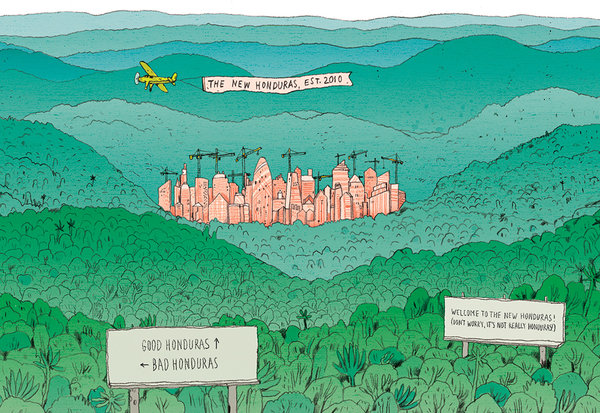

Romer’s selection of Singapore as an inspirational model for the charter city experiment also raises questions about what sort of human rights the residents of economic utopia may have to look forward to. According to a 2004 report by Amnesty International, Singapore’s overzealous application of the death penalty often affects “the most marginalised or vulnerable members of society, including drug addicts, the poorly educated, the impoverished or unemployed, and migrant workers.”
The boundaries between utopia and non-utopia become even more blurred when we recall that similar demographics in pre-charter city Honduras are regularly targeted in state-sanctioned extrajudicial assassinations.
Neoliberal viagra
Romer unsurprisingly stages numerous appearances in The World Is Flat, Thomas Friedman‘s extended ode to US corporate dominance of the globe, in which the Romerian outlook is presented as follows:
“If you come up with the next Windows or Viagra, you can potentially sell one to everyone in the world. So idea-based workers do well in globalisation, and fortunately America as a whole has more idea-driven workers than any country in the world.”
Unfortunately for the billions of people in the world who are not in a position to sell false but heavily remunerated ideas concerning global flatness, Friedman also paraphrases Romer’s acknowledgement that “if you are selling manual labour – or a piece of lumber or a slab of steel – the value of what you have to sell does not necessarily increase when the market expands, and it may decrease.”
Areas with high concentrations of non-idea-based workers are, it seems, particularly susceptible to Romer’s post-World Is Flat brainchild, and in a 2009 speech he exhorted the African continent to convert its “immense stretches of land” into charter cities. After witnessing Romer deftly euphemise the practice of colonialism into “some arrangement that’s a little bit like an escrow account, where you [ie, Africa] put land in the escrow account and [a] partner nation takes responsibility for it,” one is left wondering whether the economist might rehabilitate other relevant archaic practices, such as the slave trade.
As for the planned conversion of Honduras into a cluster of neoliberal city-states, Romer withdrew from the process last September when the Honduran government failed to play by his rules. Shortly after his departure in search of other conquerable lands, charter cities were pronounced unconstitutional but then swiftly resuscitated.
With thoroughly apparent skepticism, Inside Story’s Rattansi remarks that the charter city movement conveniently “solves a number of problems” for the domestic oligarchy: “It makes Honduras look like it’s forward-thinking, while sorting out various land conflicts that have been going on for decades” and that pit peasant-farmers and Afro-indigenous communities against elite interests.
According to propaganda emitted by the Honduran regime and its allies in The New York Times, The Economist, The Wall Street Journal, Foreign Policy magazine and other venues, the splicing of national territory into enclaves governed by international investors – who by definition are concerned with maximising profit rather than human rights -constitutes the epitome of innovation and humanitarian justice.
All the more reason not to associate the future with progress.
Belen Fernandez is the author of The Imperial Messenger: Thomas Friedman at Work, released by Verso in 2011. She is a member of the Jacobin Magazine editorial board, and her articles have appeared in the London Review of Books blog, The Baffler, Al Akhbar English and many other publications.



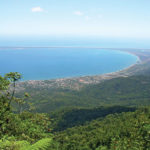
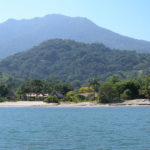
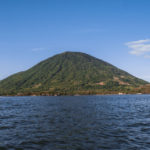
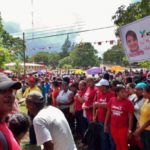






The unfortunate disfigurement of Trujillo and surrounding Garifuna coastal villages stems from Randy Jorgenson’s development of a cruise ship terminal and “eco” housing subdivisions, selling land, illegally purchased from local Garifuna communities, sight-unseen to unwitting Canadian investors. Sad they have no idea of the thievery and corruption invoked at every level, with drug traffickers holed up in the former Villa Brinkley, all enforced by the local US military training base in Puerto Castilla. At present, it appears siting one of the charter cities in Trujillo has encountered difficulties, but don’t dismiss the threat out of hand. They have serious multinational investors, and are moving forward on a site close to Puerto Cortez.
Pingback: Obama: Stop Funding Honduras' Corrupt President | WilderUtopia.com